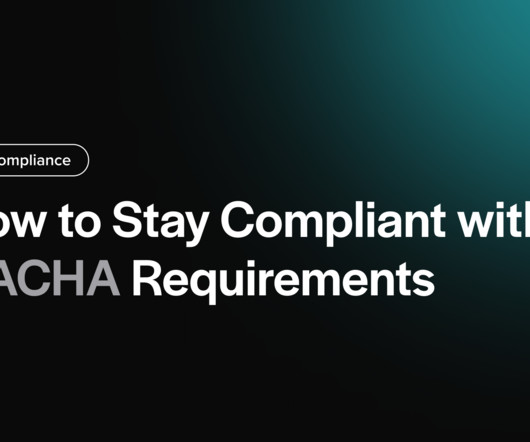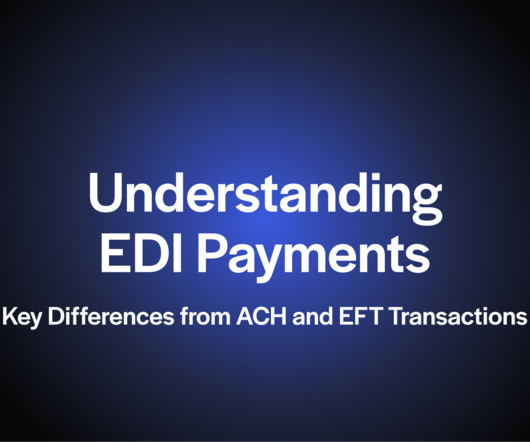How to Stay Compliant with NACHA Requirements
EBizCharge
JULY 16, 2024
Ensuring compliance with NACHA requirements is crucial for financial institutions, as it guarantees the secure, efficient, and reliable handling of electronic payments. Under NACHA’s stewardship, the ACH network processes various payments, including direct payments for payroll, social security benefits, tax refunds, and more.











Let's personalize your content